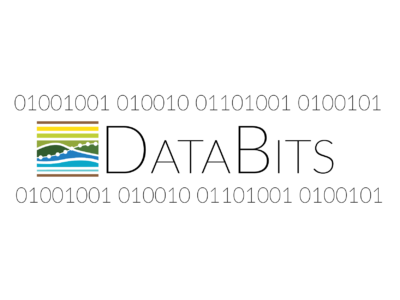DataBits Newsletter, Fall 2004

New information management tools for Interactive mapping, Data management, XML conversion, Scientific workflows Data Harvesting. ClimDB and HydroDB go spatial with the formation of WatershedDB. News Bits. Good Reads. \DataBits is a semi-annual electronic publication of the Long Term Ecological Research Network. It is designed to provide a timely, online resource for research information managers… Read more »
DataBits Newsletter, Spring 2004

John Porter talks about the latest regarding the National Environmental Observatory Network (NEON) program. Jonathan Walsh shares his experience at the Web Services Workshop (February 2-5, 2004). Karen Baker, Shaun Haber and Marshall White discuss the Postnuke Portal Software. DataBits continues as a semi-annual electronic publication of the Long Term Ecological Research Network. It is… Read more »
DataBits Newsletter, Fall 2003

Theresa Valentine and Don Henshaw discuss their approach to the marriage of tabular and spatial data at theAndrews LTER. Barrie Collins gives his take on ArcIMS, ESRI, and his management philosophy. We areexposed to adding internet spatial visualization to environmental projects when Peter McCartney discussesthree internet map applications produced by The Center for Environmental Studies,… Read more »
DataBits Newsletter, Spring 2003

Matt Jones explains the grid computing concept and describes a major new grid computing initiative for ecologists; Bill Michener fleshes out the context of that initiative with a sketch of SEEK, a wide-reaching grant for information technology in ecology. Peter Arzberger and others give us an insider’s look at an international grid computing effort for… Read more »
DataBits Newsletter, Fall 2002

Featured in this issue are two articles about wireless technology, a description of a minimalist approach to creating dynamic web pages to display database content, and a discussion about the implementation of ArcIMS by a seasoned ArcIMS user. Other articles describe the innovative GCE Matlab Toolbox and the future of the All-Site Bibliography. DataBits continues… Read more »
DataBits Newsletter, Spring 2002

Ecological Metadata Language (EML): Augmenting Research Tools and Capabilities, a quick introduction to Extensible Stylesheet Language Transformations (XSLT), a review of software tools for working with Extensible Markup Language (XML), an article on metadata management and what role Morpho and Metacat could play in an overall information management strategy at a LTER site, a review… Read more »
DataBits Newsletter, Fall 2001

Reports from information management workshops across the globe, a review of tools for importing structured text files into relational databases, and a comprehensive report on efforts to create a metadata standard for models and data sets from ecological simulation modeling efforts at Luquillo Experimental Forest. DataBits continues as a semi-annual electronic publication of the Long… Read more »
DataBits Newsletter, Spring 2001

A Custom data management system, International LTER Information Management Workshop, The NASA Scientific Data Purchase Program, and Web-based data entry for dummies. DataBits continues as a semi-annual electronic publication of the Long Term Ecological Research Network. It is designed to provide a timely, online resource for research information managers and to incorporate rotating co-editorship. Availability… Read more »
DataBits Newsletter, Fall 2000

According to most of the plenary addresses of the 2000 All Scientists Meeting in Snowbird, Utah, ecologicalresearchers must “think outside the box”. Sociologists, modelers, climatologists, paleoecologists, remotesensing specialists, and science administrators all emphasized the need of ecological scientists to becomecomfortable with multiple disciplines and define questions that are significant in each of these fieldssimultaneously. Only… Read more »
DataBits Newsletter, Spring 2000

Featured in this issue: Data management tools & resources, 2000 All-Scientists Meeting DataBits continues as a semi-annual electronic publication of the Long Term Ecological Research Network. It is designed to provide a timely, online resource for research information managers and to incorporate rotating co-editorship. Availability is through web browsing as well as hardcopy output. LTER… Read more »

